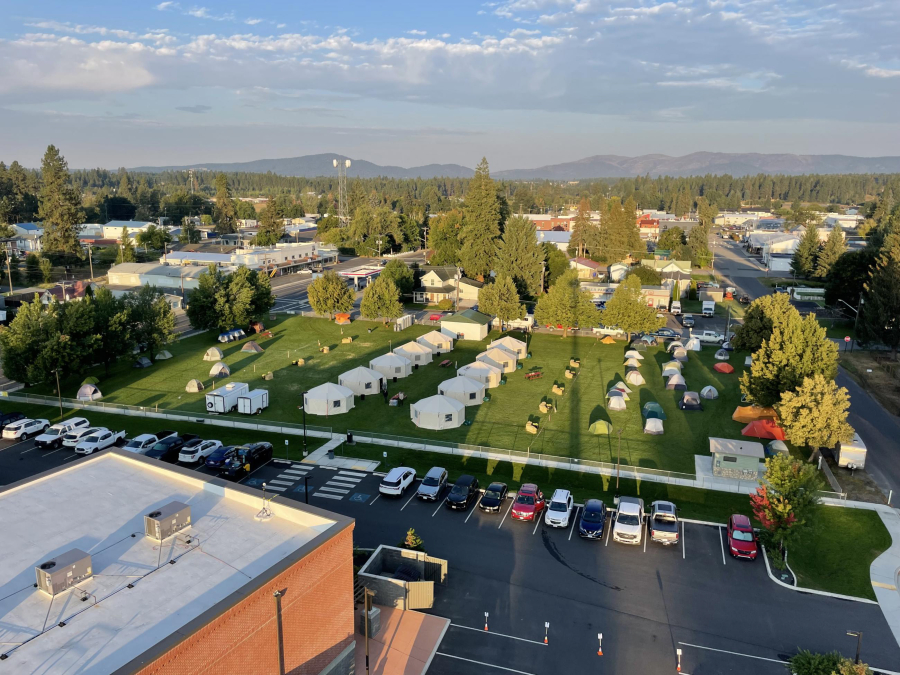SPOKANE — The Gray and Oregon Road fires have destroyed 366 houses and left hundreds homeless.
Families have to figure out where to live and how to get their kids to school. They have to call insurance companies, replace burned-out cars and clean up wreckage. Their to-do lists are filled with dozens of complex and stressful chores that have to be completed before life can return to anything resembling normal.
But officials are hoping Spokane County’s wildfire victims can worry a bit less about property taxes.
Property owners in Washington don’t have to pay taxes on homes or structures destroyed by mudslides, wind, fire, water, vandals and other catastrophic forces. In other words, people who lost homes in the Gray and Oregon Road fires won’t owe taxes on buildings that no longer exist.
While its net effect — tax relief — is straightforward, Washington’s reduction-in-value law is complicated.
Imagine a family in Medical Lake has an $80,000 house that sits on a $20,000 parcel of land. Their 2023 tax bill is $1,000, with $800 of that connected to their dwelling and $200 connected to their lot.
Then the Gray fire tore through on Aug. 18, turning their home into a pile of ash.
The home existed for 229 days of 2023, or 63% of the year. Therefore, the family has to pay property taxes on 63% of the value of the building. Before the fire, the home-related portion of their property tax bill for 2023 was $800. Now, it’s $504.
The lot where the home once stood hasn’t gone anywhere, however, so the family still has to pay $200 for the value of their land.
Property tax calculations get trickier as people start to rebuild.
Imagine the same hypothetical Medical Lake family doesn’t build anything on their charred land next year. In that scenario, their 2024 property tax bill will be based exclusively on the value of their land.
Homeowners can potentially receive property tax exemptions in the three-year window after they start rebuilding, too, although their savings will vary depending on the value of their new construction and the extent of the damage to their original structures.
Spokane County Assessor Tom Konis said the three-year exemption for new construction will only be available if Gov. Jay Inslee decides that the lands affected by the Gray and Oregon Road fires qualify as disaster areas.
Individuals who lost property in the Gray and Oregon Road fires can call the assessor’s office at (509) 477-3698 to see if they qualify for tax relief, or visit the assessor’s office’s website. Property owners have three years to file applications, although many won’t have to do any paperwork at all.
To the best of its ability, the assessor’s office will calculate tax reductions on behalf of property owners, even if they haven’t applied for relief.
In order to figure out which properties qualify, the assessor’s office is paying an aerial imaging company $13,600 to fly over the burn areas in planes and take high-resolution pictures.
Once the assessor’s office has a fresh map, staff will identify damaged and destroyed properties. When they find one, they’ll begin the reevaluation process on the behalf of property owners and see if a tax reduction is warranted.
Konis said he hopes the flyover will allow his office to spot 80-90% of the properties affected by the wildfires. Some will be hidden from view by tree canopies.
“We’re trying to do it with aerial imagery rather than bother people,” Konis said. “They have enough on their minds. It’s not something they should have to worry about if we can take care of it.”
State law also allows county treasurers to offer some help to wildfire victims during a state of emergency.
Spokane County Treasurer Michael Baumgartner said individuals who were affected by the fires, but didn’t suffer direct property damage, can apply for tax extensions.
Property owners who qualify will have an extra three months to pay their second-half taxes. Their due date will be Jan. 31 instead of Oct. 31.
Baumgartner said that tax extension could be useful for business owners who have suffered financially due to the wildfires. For example, if a grocery store has experienced a loss in sales due to wildfire-related evacuations, they’d probably qualify for the extension.
On top of the three-month extension, Baumgartner said the treasurer’s office will offer short-term, no-interest loans to public districts affected by the fires. That could include school districts and fire districts.
Konis and Baumgartner said they don’t know how much the wildfires will cost governments in property tax revenues. While the fires destroyed more than 700 structures, it isn’t yet clear how much those structures were worth.
“I don’t know how many were $500 garden sheds compared to $500,000 houses,” Konis said.
The total impact on property tax revenues will be relatively small, short-lived and disproportionately felt by public districts that overlap the burn area.
Any revenue loss will be limited to the 2023 tax year. Governments will return to their normal property tax collections in 2024, even as homeowners on the West Plains and in northern Spokane County begin to rebuild.
Those who didn’t suffer damage in the wildfires will shoulder a larger property tax burden, although for some the increase will probably be imperceptible.
“Taxes will get rebalanced next year and everyone in those impacted areas that didn’t receive the relief would see a slight tax increase to make up for it,” Baumgartner said. “That’s just the way the system is designed.”




